Every move you make here in Sydney at the moment, you sweat. It's sticky. On these uncomfortably humid, end-of-summer days, the weather forecasters endlessly repeat their "chance of a shower" chant each morning, and that means it's very warm and humid, mostly sunny all day, then in the late afternoon there's rain or, if we're lucky, a storm as well.
While it's not my favourite time I year (the humidity knocks me around more and more as I get older), I do enjoy this season because it's time for the changeover from the spring/summer crops, to the autumn/winter plantings in the vegie patch. Rip out the old crops, plant new ones. That's what I call fun.
So the garden looks like a mulch farm at the moment, with not much to show for all the effort, but I do like digging soil. That's one of the best bits about gardening. Digging over soil. I also enjoy adding a bit of dolomite lime to sweeten the soil's pH, then working in some cow manure and compost to give the worms and all the other soil-borne critters a treat. At the end of it all, smooth over and level the rich dark soil, stand back and admire your work...
The digging takes some time, the planting seems to be over in minutes. I've been a bit lazy this time round. Instead of conscientiously raising everything from seed I went down to the garden center and bought some punnets of seedlings. I've sown seeds, too, but only here and there. Here's how things are going, in the Changeover Season of autumn 2014.
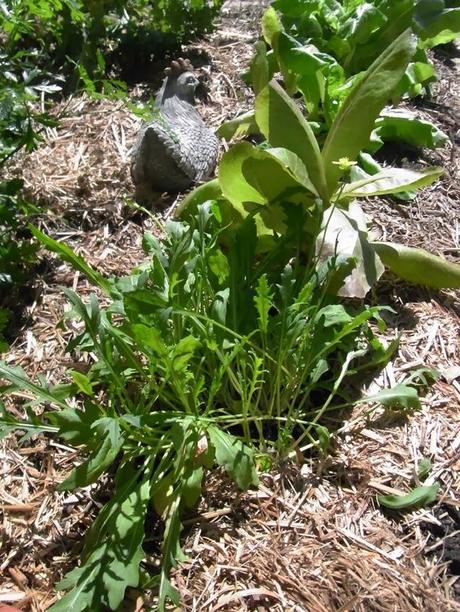
Wild rocket in front, lettuce (raised from seed)
behind. The wild rocket is the serrated-leaf kind
seen most commonly in shops. It's a perennial
plant that should last some time here. It's a much
better bet as a garden plant than the ultra-fast
growing annual type of rocket. Mind you, baby
annual rocket (with the rounded leaves) is still
my favorite rocket to eat, but it's so much work
to sow, re-sow, re-sow, re-sow. Eventually I
tire of the effort, and give it a rest. At least
with this wild rocket you get an easier supply.
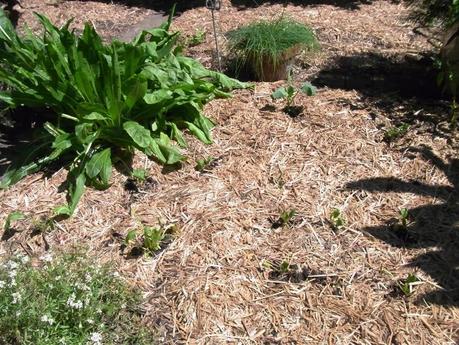
Here's the mulch farm. There are spinach seedlings in the
centre, spring onions as well, perpetual spinach on the left.
The perpetual spinach will crop well until spring and is one
of my favorite leafy greens. The English spinach is much
shorter-lived, but it is so nice in Japanese cuisine. The big
leafy greens on the left are more chicory plants, and they are
another excellent leafy green that we turn into Greek-style
horta, boiled greens dressed with olive oil and lemon juice.
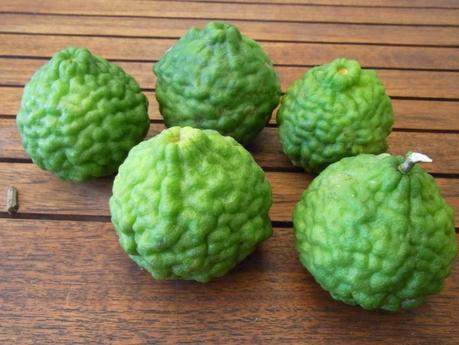
There is such a thing as too many Thai limes. They're falling
off the tree now. It's a wonderful choice if you're wondering
which citrus to grow in a pot. It reaches a bit over 1m tall
and wide and seems quite hardy, too. Just brushing past the
leaves or the fruit is such a fragrant thing to do.
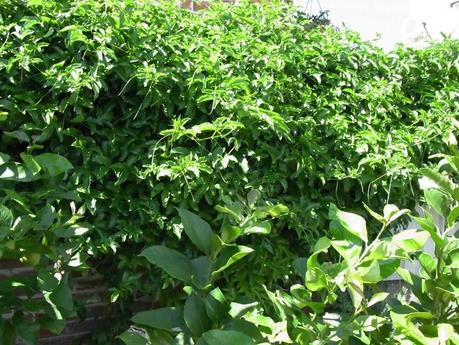
Huge, green and unproductive. I've tried watering in some
sulphate of potash to stimulate flower production on our
18-month-old passionfruit vine. No luck. Plan B is do nothing
at all. Pretend it's not there. It's a bit hard to do when it
is so huge, so it's now my 'elephant in the room' plant.
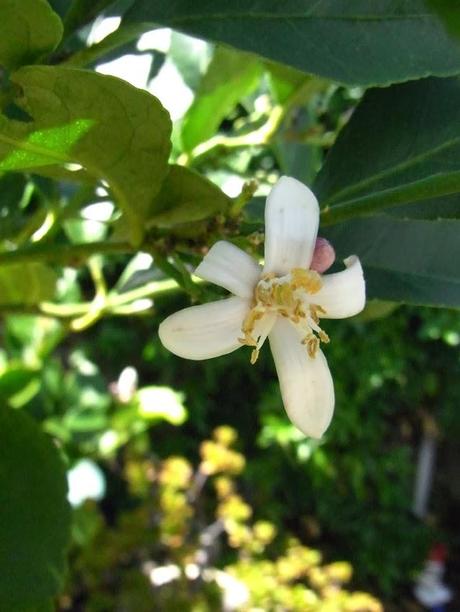
At least the lemon tree is flowering its head
off. It smells lovely in the still morning air,
and hopefully the recent rains and the big
dose of chicken poo I gave it will restore it to
health and happiness.
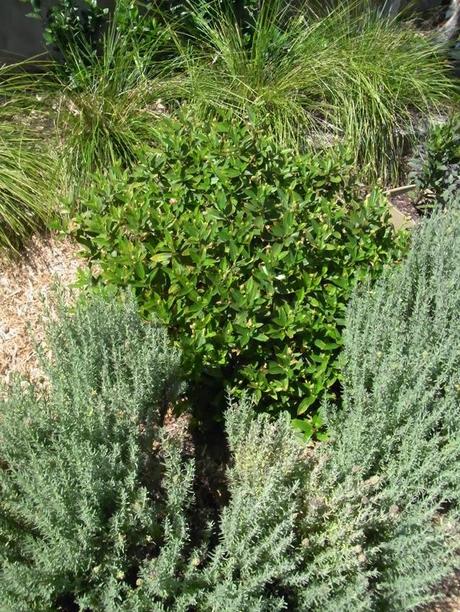
Have you ever anxiously watched a plant, hoping
it would flower in time for the big Sunday lunch
that you've invited some friends to? Well, our
Tibouchina 'Jules' is letting us down. It has
18 hours left to burst into purple glory by midday
tomorrow. Otherwise it's just another green blob
in our very green blob of a garden. Healthy, yes.
In flower, not yet.
The first of the collard green seeds are already up, after only five days in the soil. The Nigella seeds are on a more leisurely schedule. They'll appear in a couple of weeks, and the flowers won't do their thing for at least another six or seven months. I can wait. It's one of the very nice thing about growing plants from seed. They offer the chance to share in a full life-cycle, especially if you harvest the seeds at the end of it all. I like that idea.
